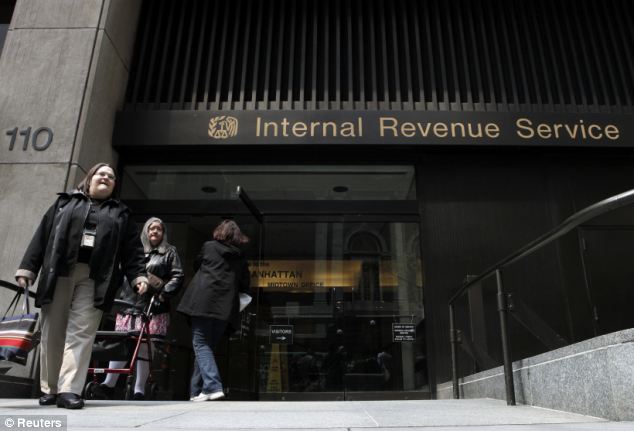
A current Internal Revenue Service employee revealed during a closed-door interview with congressional staffers that the agency is still subjecting Tea Party groups with a level of scrutiny that it doesn’t apply to other applicants for nonprofit tax exempt status.
The news comes three months after the IRS was forced to admit it targeted conservative organizations with special screening based on ideological suggestive words in their names.
The employee, whose job entails evaluating new tax-exempt applications, told House Ways and Means Committee investigators that “secondary screening” is still employed inside the IRS because no one has told rank and file workers how to handle applications from Tea partiers.
Ways and Means chairman Rep. Dave Camp told the Washington Examiner that the continued targeting program is “outrageous”.
A committee aide added that “in plain English, the IRS is still targeting tea party cases”.
In an August 1 transcript released Thursday by Camp’s staff, a Ways and Mean committee staffer asked the newest IRS witness: “How do you analyze advocacy cases. If, for example, Tea Party of Arkansas came in today, how would you handle it?”

After clarifying that a previous “Be On The Lookout” list no longer targeted groups based on their names alone, the agent said: “If a political advocacy case came in today, I would give it – or talk about it to my manager because right now we really don’t have any direction or we haven’t had any for the last month and a half.”
The interviewer asked what would happen: “If today … a case from a tea party group came in to your desk, you reviewed the file and there was no evidence of political activity, would you potentially approve that case? Is that something you would do?”
“At this point,” the agent replied, “I would send it to secondary screening, political advocacy … based on my current manager’s direction.”
In an August 6 Washington Post op-ed, Camp and House oversight committee chairman Rep. Darrell Issa wrote: “The White House and its allies have engaged in a flailing effort to put this scandal behind them.”
But the new revelations will practically guarantee that the IRS scandal will continue to consume committee hearing time when Congress returns from its month-long recess.
“When the scandal was first revealed,” wrote Darrell Issa, “the president promised the American people that the administration would <<hold the responsible parties accountable>>. Yet upon the direction of the president, new IRS acting Commissioner Daniel Werfel ordered a 30-day review, upon which Werfel claimed the agency found no “evidence of intentional wrongdoing by anyone in the IRS.”
The White House, they claimed, “has vacillated between indifference and acknowledgment of inappropriate IRS behavior”.
“Consider this: On the same day President Obama bemoaned the <<phony scandals>> plaguing his administration, his chief spokesman, Jay Carney, allowed that <<we need to get to the bottom of what happened at the IRS>>. Which is it?”
[youtube CpTbUhBKsQw]
[youtube AXwiILANNMM]